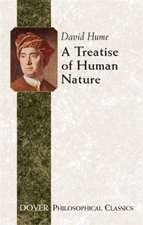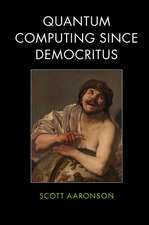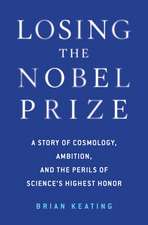Conjectures and Refutations: The Growth of Scientific Knowledge
Autor Karl Popperen Limba Engleză Paperback – 2 mai 2002
| Toate formatele și edițiile | Preț | Express |
|---|---|---|
| Paperback (1) | 148.52 lei 3-5 săpt. | +26.53 lei 6-12 zile |
| Taylor & Francis – 2 mai 2002 | 148.52 lei 3-5 săpt. | +26.53 lei 6-12 zile |
| Hardback (1) | 518.04 lei 6-8 săpt. | |
| Taylor & Francis – 2 mai 2002 | 518.04 lei 6-8 săpt. |
Preț: 148.52 lei
Nou
Puncte Express: 223
Preț estimativ în valută:
28.42€ • 29.67$ • 23.52£
28.42€ • 29.67$ • 23.52£
Carte disponibilă
Livrare economică 14-28 martie
Livrare express 27 februarie-05 martie pentru 36.52 lei
Preluare comenzi: 021 569.72.76
Specificații
ISBN-13: 9780415285940
ISBN-10: 0415285941
Pagini: 608
Dimensiuni: 129 x 198 x 47 mm
Greutate: 0.64 kg
Ediția:Revizuită
Editura: Taylor & Francis
Colecția Routledge
Locul publicării:Oxford, United Kingdom
ISBN-10: 0415285941
Pagini: 608
Dimensiuni: 129 x 198 x 47 mm
Greutate: 0.64 kg
Ediția:Revizuită
Editura: Taylor & Francis
Colecția Routledge
Locul publicării:Oxford, United Kingdom
Public țintă
General, Postgraduate, and UndergraduateNotă biografică
Karl Popper (1902-1994). Philosopher, born in Vienna. One of the most influential and controversial thinkers of the twentieth century.
Recenzii
'The central thesis of the essays and lectures gathered together in this stimulating volume is that our knowledge, and especially our scientific knowledge, progresses by unjustified (and unjustifiable) anticipations, by guesses, by tentative solutions to our problems, in a word by conjectures. Professor Popper puts forward his views with a refreshing self-confidence.' - The Times Literary Supplement
'Professor Popper holds that truth is not manifest, but extremely elusive, he believes that men need above all things, open-mindedness, imagination, and a constant willingness to be corrected. In summarizing his views in this way, I have done scant justice to the subtlety and importance of his argument. His own presentation of his case is luminously clear.' - Maurice Cranston, Listener
'Popper holds that truth is not manifest, but extremely elusive, he believes that men need above all things, open-mindedness, imagination, and a constant willingness to be corrected.' – Maurice Cranston, Listener
'Professor Popper holds that truth is not manifest, but extremely elusive, he believes that men need above all things, open-mindedness, imagination, and a constant willingness to be corrected. In summarizing his views in this way, I have done scant justice to the subtlety and importance of his argument. His own presentation of his case is luminously clear.' - Maurice Cranston, Listener
'Popper holds that truth is not manifest, but extremely elusive, he believes that men need above all things, open-mindedness, imagination, and a constant willingness to be corrected.' – Maurice Cranston, Listener
Cuprins
INTRODUCTION On the Sources of Knowledge and of Ignorance CONJECTURES 1 Science: Conjectures and Refutations Appendix: Some Problems in the Philosophy of Science 2 The Nature of Philosophical Problems and their Roots in Science 3 Three Views Concerning Human Knowledge 4 Towards a Rational Theory of Tradition 5 Back to the Presocratics 6 A Note on Berkeley as Precursor of Mach and Einstein 7 Kant’s Critique and Cosmology 8 On the Status of Science and of Metaphysics 9 Why are the Calculi of Logic and Arithmetic Applicable to Reality? 10 Truth, Rationality, and the Growth of Scientific Knowledge REFUTATIONS 11 The Demarcation Between Science and Metaphysics 12 Language and the Body-Mind Problem 13A Note on the Body-Mind Problem 14 Self-Reference and Meaning in Ordinary Language 15 What is Dialectic? 16 Prediction and Prophecy in the Social Sciences 17 Public Opinion and Liberal Principles 18 Utopia and Violence 19 The History of Our Time: An Optimist’s View 20 Humanism and Reason
Descriere
One of Karl Popper's most wide-ranging and popular works, it provides the clearest statement of the fundamental idea that guided his work: that our knowledge grows by an unending process of trial and error.


























